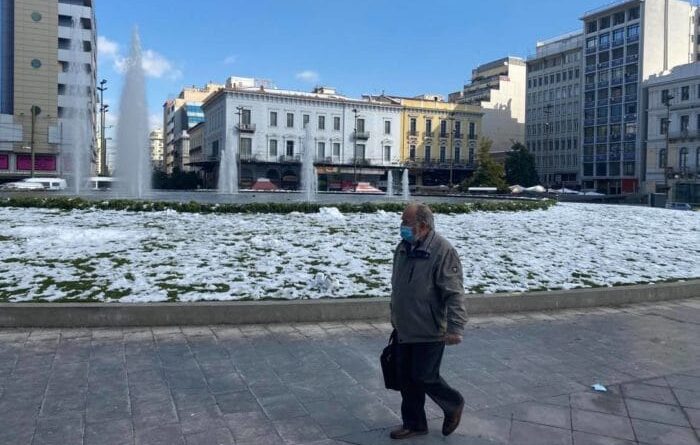Inflation taking ever bigger bite out of Greek retirees’ pension income
Pensioners in Greece are struggling to make ends meet as galloping inflation and high energy prices take a toll on household budgets.
After they lost an average of 25 percent of their income during the Greek debt crisis-related bailouts (2010-2018), the recent jumps in food and heating costs take their anxiety up a notch.
During a recent interview granted to Xinhua in a cafe in central Athens, Christos Vassilopoulos, 82, was adding up his monthly bills while sipping his coffee. The sum total, he said, was enormous.
“My pension has not changed. Things are becoming ever more expensive. What can be done? Prices are going up like crazy. You go to the market and find a product that sells for, say, three euros (2.93 U.S. dollars). The next day, the same thing costs six euros already,” he said.
For the first time in 12 years, the government will increase pensions by up to 7 percent in 2023. But for Vassilopoulos, this is too little and too late, just like the government’s subsidy for energy bills. He added that the subsidy specified on the bills was simply no match to the amount payable.
Last year, Vassilopoulos used natural gas to heat his apartment. This winter will be different: he said he still did not know how he will keep his home warm.
“It is tough, the entire situation is tough,” Georgia, another pensioner, told Xinhua at a nearby vegetable market. She said she and other residents in her block of flats haven’t discussed what to do about heating this winter.
If the other residents decide against using natural gas for heating this winter because of the high prices, she will have to rely on the air conditioner and space heaters, she said.
According to the Hellenic Statistical Authority (ELSTAT), the inflation rate in Greece reached 12 percent in September. In the same month, the price of natural gas was 332 percent higher than in the same period in 2021, and the respective increases were 65.1 percent for heating oil and 30.5 percent for electricity.
In early October, the country’s pensioners’ associations staged a protest in the capital, demanding an increase in the minimum pension from 384 euros to 650 euros per month.
“How can a family live on 400 euros?” Evgenia, Georgia’s neighbor, asked.
She said she was trying to help her children to raise their children. “I would rather stay hungry to help the children, as all other parents do,” she sighed.
Read more @EnglishNews
273 views










